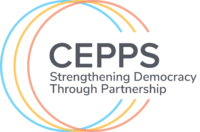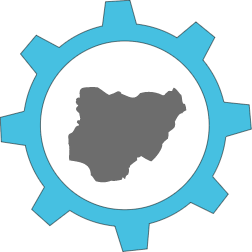Support For Electoral
Reform Project
In 2020, CEPPS/IFES partnered with a youth-focused civil society organization in Nigeria, Kimpact Development Initiative (KDI), in implementing the “Nigeria Election Violence Report” (NEVR) project to monitor and track conflict ahead of the off-season elections in Edo and Ondo states. KDI substantially improved and strengthened the NEVR project’s impact in monitoring, raising awareness, and advocating for change around issues of electoral violence. Their approach included proactive, consistent engagement with the Independent National Electoral Commission (INEC), National Peace Committee (NPC), and other key stakeholders, including local community leaders and traditional rulers. Engagement included sharing of useful data with the INEC to inform security planning and the dissemination of reports and fact sheets, which supported pre-election conflict mitigation and candidates’ signing of the Peace Accord in both Edo and Ondo states. With technical assistance from CEPPS/IFES, KDI also substantially expanded NEVR’s tracking of violence against women in elections.
KDI’s engagement with local peace structures enhanced community outreach and local ownership of the peace process. For example, KDI’s engagement with the Oba (traditional leader) of Benin through its collaboration with INEC and the NPC led to a de-escalation of violence and tension on Election Day. KDI’s engagement with these traditional leaders and community structures also ensured the adoption of community solutions to mitigate violence on Election Day.
KDI also utilized social media engagement for disseminating peace messages. In an initiative that connected a youth, peace, and security focus with women, peace, and security considerations, KDI used videos to raise awareness about electoral violence against women, including the “We Can Do Better” campaign on social media. One such video highlighted societal barriers that discourage women’s political participation, promoted women’s participation in the electoral process, and encouraged viewers to shun violence against women in elections. The video was widely shared across social media and with electoral stakeholders. This and other informative social media messages deployed by KDI, including anti-violence messages aired through television and radio advertisements, contributed to driving an effective peace education effort. KDI also utilized technology to collect electoral violence monitoring data more quickly and effectively. KDI and NEVR’s mobile app VTrack helped with monitors’ reporting efforts and reduced the time needed to review and verify incident reports.
Youth Policy Agendas in Ekiti, Kaduna, and Osun
In 2019, NDI carried out a series of training events on organizing, advocacy, and policy development for three partners: New Generation Girls and Women Development Initiative (NIGAWD); One Project Afrika (OPA); and KDI in Ekiti, Kaduna, and Osun states. The training was implemented as part of the USAID-funded Electoral Empowerment of Civil Society Program (EECSP).
NDI trained partners on different forms of advocacy and collective action, including strategies for building power, identifying and maintaining relationships with allies, message development, and social media skills. Throughout the training, participants learned about the importance of consulting young people working across sectors, such as education, health, and agriculture, to ensure that a diverse set of priorities would be reflected in their initiatives. Participants also gained knowledge about which political actors and institutions have decision-making power at the state-level and increased their understanding of how to influence the budgetary process with factual and compelling data.
Utilizing the skills and knowledge gained, each partner organization created a youth policy agenda and designed a complementary advocacy campaign in Ekiti, Kaduna, and Osun. Each campaign sought to address the political and socio-economic needs of young people in the state and convince key political actors to adopt their policy recommendations. Prior to the development of each policy agenda, each organization consulted young people using questionnaires that were administered to better understand young people’s priorities. Each youth agenda included critical priorities, such as education, health, agriculture, employment and entrepreneurship, peace and security, and poverty reduction. The youth agendas also included recommendations for line items to be included in the 2020 state budget.
Throughout the implementation of these advocacy campaigns, each partner mobilized and organized young people to advocate for change and to call for implementation of the policy agenda in their respective states. NIGAWD, OPA, and KDI held regular media roundtables with a cohort of journalists who reported on the progress of the advocacy campaigns. Each partner held policy town halls and dialogues with state-based youth organizations, senior government officials, entrepreneurs, and CSOs to discuss the recommendations in the policy agenda and gain public support. Each partner met regularly with various stakeholders across sectors including the ministries of health, commerce and industry, budget and planning, education, and agriculture to encourage government ministries, departments, and agencies to uphold their budget commitments.
The youth policy agenda process and advocacy campaigns placed young people, including young women, in visible leadership positions and helped them build relationships with civic and political actors in each state. Young people were able to influence the budget process and better understood how the policy process and the budget process can have real implications on the issues they care about most. A post-program evaluation found that the youth policy agendas and the advocacy campaigns responded to the particular priorities and needs of young people in each state and that young people were involved in every step of the process. In Kaduna, three of KYA’s recommendations in ministry budgets included construction of ramps at primary school buildings; refurbishment of warehouses for young entrepreneurs; and relocation incentives for health workers. Three recommendations from the Osun Youth Agenda (OYA) were also included in budgets, including creating youth innovation hubs; youth-friendly health centers; and farm settlements.

